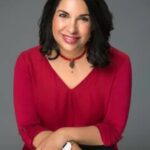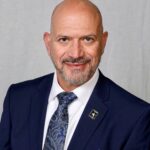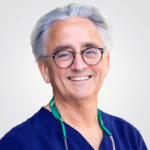Dr. Steve Carstensen is always prepared for communication with patients or colleagues.

New Orleans is an inspiring city. Walking around the Garden District with its flowers and big houses, or when seeking out live music, one takes in history mixed with day-to-day joy of living. It’s a city of contrasts with very old buildings in disrepair side-by-side with new, vibrant businesses and homes.
While it’s easy to convince me to visit New Orleans, an invite to speak at a remarkable conference, Airway Palooza, was enticing – it’s one of the best times to gather with peers and learn from each other. After these happy events, it’s interesting to take stock of how it went – what did I learn, what connections were made or enhanced, what new opportunities are available.
The organizer asked me for an ‘update on dental sleep medicine.’ With that open direction, I gave a talk about when we make a difference in patients’ lives. I said there are three chances: First, Best, and Last chances, depending on how long the person has had to deal with the consequences of poor breathing, daytime and during sleep. It felt good to hear kudos after the talk.
There are many ideas that came to me afterwards I wish I had time and thought to say. ‘Great’ points I could have made. ‘Important’ details that would have enhanced the message. Things I wish I would have said.
The only one who knows what I ‘left out’ is me. My audience has no idea. They have access to what they heard, and control over how it applies, or doesn’t, to their lives. As an educator, I’ve come to realize a presentation is like a gift – the content becomes the receiver’s, to use as they wish. The (amazing!) pearls I left out might have been super well-received, or completely passed over.
Isn’t clinic like that? You take in all the details you can gather, consider your medical choices, and recommend therapy accompanied by explanation. How is that different from my talk? We give our patients a gift of our clinical wisdom – that’s why they sought us out – but we cannot control what they do with that gift. We can communicate details, a sense of urgency, a list of possible consequences of treatment and no treatment. What they do with everything we give them is completely out of our control.
And they know only the things we tell them. They don’t know what we don’t say any more than we know what they learned online, from other health care professionals, or from friends.
Communication is a mess. From the front of the room, I hope my gift to the learners will be found valuable and create action. What I leave out bothers me, not them. In my clinic, I hope to support value for the choices my patients own. I think of what else I could have said every day. Especially when outcomes don’t meet expectations.
Next time you find yourself ruminating about what you wish you’d said, give yourself credit for the gifts you provided, and look for the next chance to help. Like an old building that is still standing despite neglect, your relationship with your patient will survive. Remember, they don’t know what you didn’t say.
Communication is important between physicians and dentists in the treatment of breathing-disordered sleep. Read “The Precision Medicine Paradigm for Dental Sleep Medicine” here: https://dentalsleeppractice.com/physicians-perspective/precision-medicine-paradigm-dental-sleep-medicine/.



